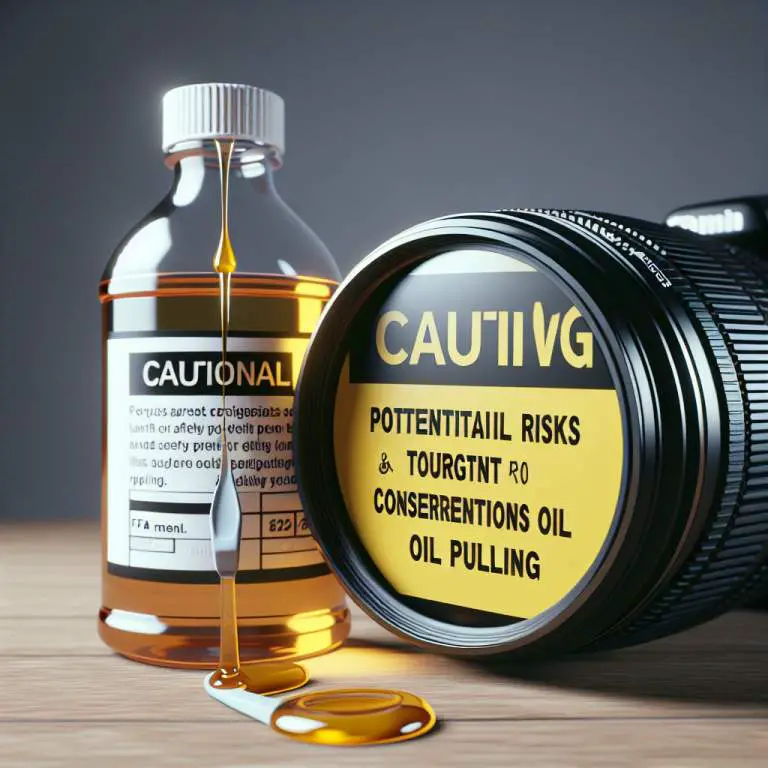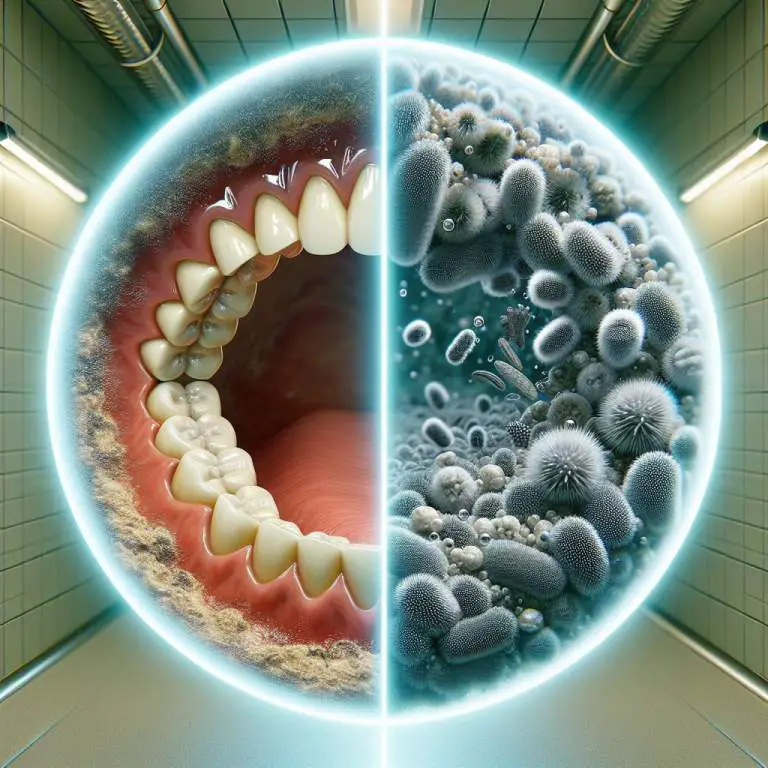Can oil pulling help with sensitive teeth and digestion?
Yes, oil pulling can help with sensitive teeth and digestion. This natural method involves swishing oil in your mouth to pull out bacteria and toxins. It can reduce tooth sensitivity by decreasing the amount of harmful bacteria. Also, by improving oral health, it indirectly supports better digestion since the process of digestion starts in the mouth.

How does oil pulling work to reduce tooth sensitivity?
When you have sensitive teeth, eating or drinking something very hot or cold can make you feel discomfort or pain. Oil pulling can help reduce this sensitivity. The process involves swishing oil around in your mouth. This action helps to pull out bacteria and toxins from your teeth and gums.
The oil forms a protective layer over your teeth, which can prevent things that cause sensitivity, like extreme temperatures, from affecting your teeth directly. Over time, this can lead to less sensitivity because the harmful bacteria that can cause gum disease and decay are reduced. Healthier gums support stronger teeth, which are less likely to be sensitive.
What types of oil can be used for oil pulling?
Several types of oil can be used for oil pulling, but the most common ones are coconut oil, sesame oil, and sunflower oil. Coconut oil is a popular choice because it has a pleasant taste and is known for its antibacterial properties. This means it can help fight the bacteria in your mouth that cause tooth decay and gum disease.
Sesame oil is another good option because it has been used for this practice for thousands of years, especially in Ayurvedic medicine. Sunflower oil is also used, but it’s less common. Each type of oil has its own benefits, but they all work to clean your mouth and reduce bacteria when used for oil pulling.
Can oil pulling improve your overall oral health?
Yes, oil pulling can improve your overall oral health. By removing bacteria and toxins from your mouth, it helps prevent cavities, reduce gum inflammation, and even freshen your breath. The action of swishing the oil around your mouth increases saliva production, which naturally cleanses the mouth.
Regular oil pulling can lead to stronger, healthier gums and teeth, and may even whiten your teeth over time. It’s a simple addition to your daily oral hygiene routine that can make a big difference in your mouth’s health.
How often should you do oil pulling for sensitive teeth?
For those with sensitive teeth, doing oil pulling regularly can help reduce discomfort. It’s generally recommended to do oil pulling 3-4 times a week for best results. However, some people might find daily oil pulling more beneficial, especially when starting out.
The key is to listen to your body and adjust as needed. If you notice improvements in your sensitivity and overall oral health, you might choose to continue with daily oil pulling or adjust to a less frequent schedule. Remember, consistency is important to see long-term benefits.
| Question | Answer | Explanation |
|---|---|---|
| Can oil pulling help with sensitive teeth? | Maybe | Some people say oil pulling makes their teeth feel less sensitive because it might reduce bacteria and inflammation in your mouth. |
| Can oil pulling help with digestion? | Possibly | Oil pulling might improve your digestion by starting the process of getting your saliva ready, which is important for breaking down your food. |
Does oil pulling have benefits for your digestion?
Yes, oil pulling might help your digestion. When you swish oil around in your mouth, it can catch bad bacteria before they get a chance to go down into your stomach. This means there are fewer bad bacteria in your gut, which can make your digestion work better.
Also, a healthy mouth can lead to a healthier gut. Since the mouth is the start of the digestive system, keeping it clean with practices like oil pulling can support the whole system. This might make you feel less bloated and improve how your body handles food.
How does oil pulling affect the bacteria in your mouth and gut?
Oil pulling is like a magnet for bacteria in your mouth. The oil pulls bacteria away from your teeth and gums. This can lower the number of harmful bacteria that end up in your gut. A balanced bacteria level in your gut is important for good digestion and overall health.
By reducing the bad bacteria in your mouth, oil pulling can help maintain a healthy balance in your gut’s microbiome. This balance is key for digesting food properly and keeping your immune system strong. So, oil pulling might not just be good for your mouth, but for your gut health too.
What are the best practices for oil pulling to help with digestion?
To get the most out of oil pulling for your digestion, do it first thing in the morning before you eat or drink anything. Use a tablespoon of oil, like coconut or sesame oil, and swish it around your mouth for 15 to 20 minutes. This gives the oil enough time to bind with the bacteria.
After swishing, spit the oil into a trash can, not the sink, to avoid clogs. Rinse your mouth with warm water and brush your teeth as usual. Doing this regularly can help improve not just your oral health, but your digestion too.
Are there any risks or side effects of oil pulling?
Oil pulling is generally safe for most people, but there are a few things to keep in mind. First, make sure you don’t swallow the oil, as it contains bacteria and toxins pulled from your mouth. Swallowing it could upset your stomach.
Also, some people might be allergic to the oils used for oil pulling. If you notice any irritation or allergic reactions, stop oil pulling and talk to your doctor. Remember, while oil pulling can be beneficial, it shouldn’t replace regular dental care or treatments recommended by your dentist.
Final Thoughts
Oil pulling can be a simple and natural way to support not just your oral health, but your digestion too. By reducing harmful bacteria in your mouth, you can help maintain a healthy balance in your gut. This can lead to better digestion and overall health.
Remember to follow the best practices for oil pulling and be aware of any potential risks. As with any health practice, it’s a good idea to talk to your doctor or dentist if you have any concerns or questions about starting oil pulling.







